ESC 24: Hot Line & Late-breaking Science Video Collection
Published: 15 August 2024
-
Views:
 2985
2985
-
Likes:
 7
7
-
Views:
 2985
2985
-
Likes:
 7
7
-
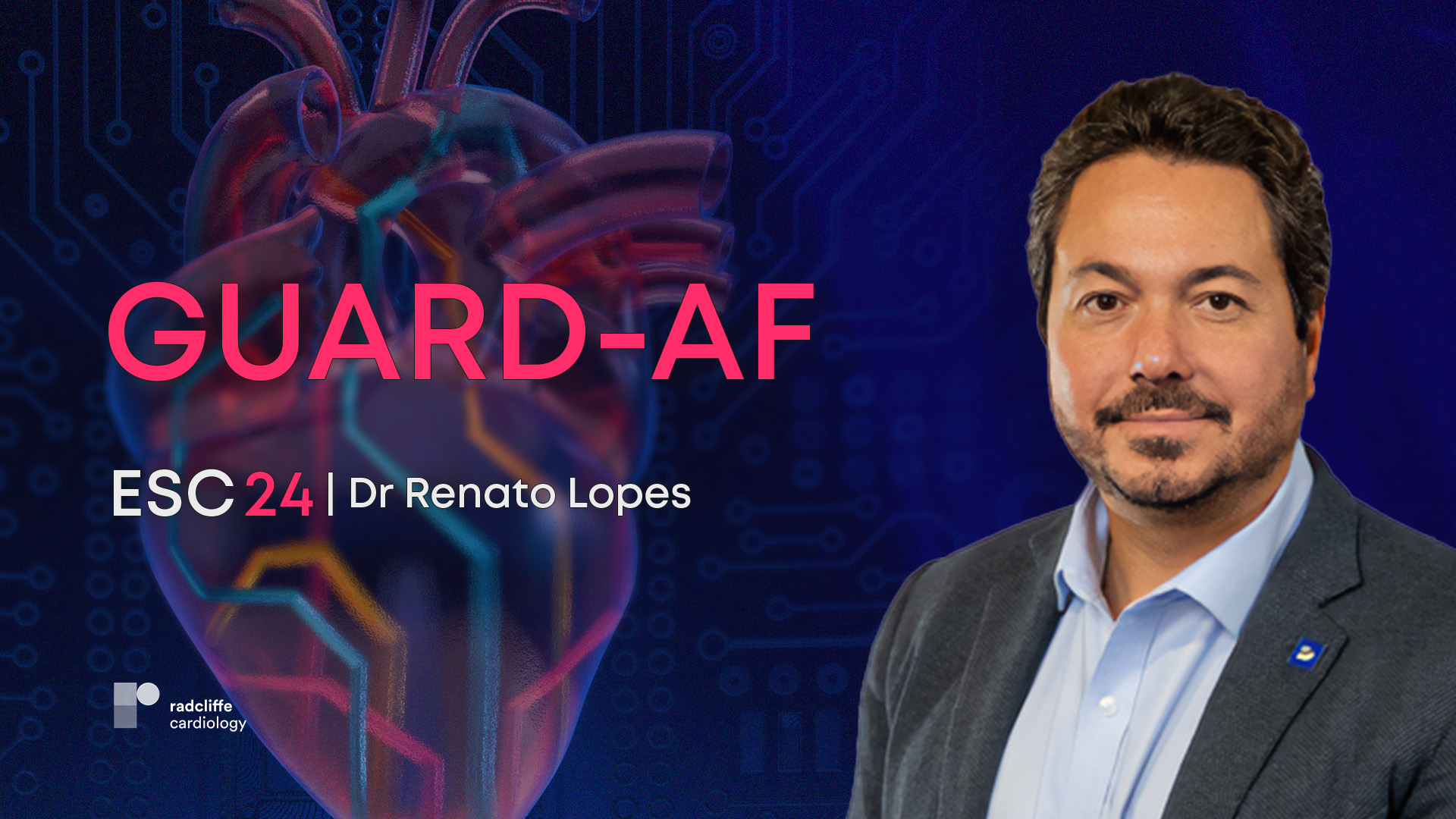 Up Next
Up Next -
 2m 31s
2m 31s -
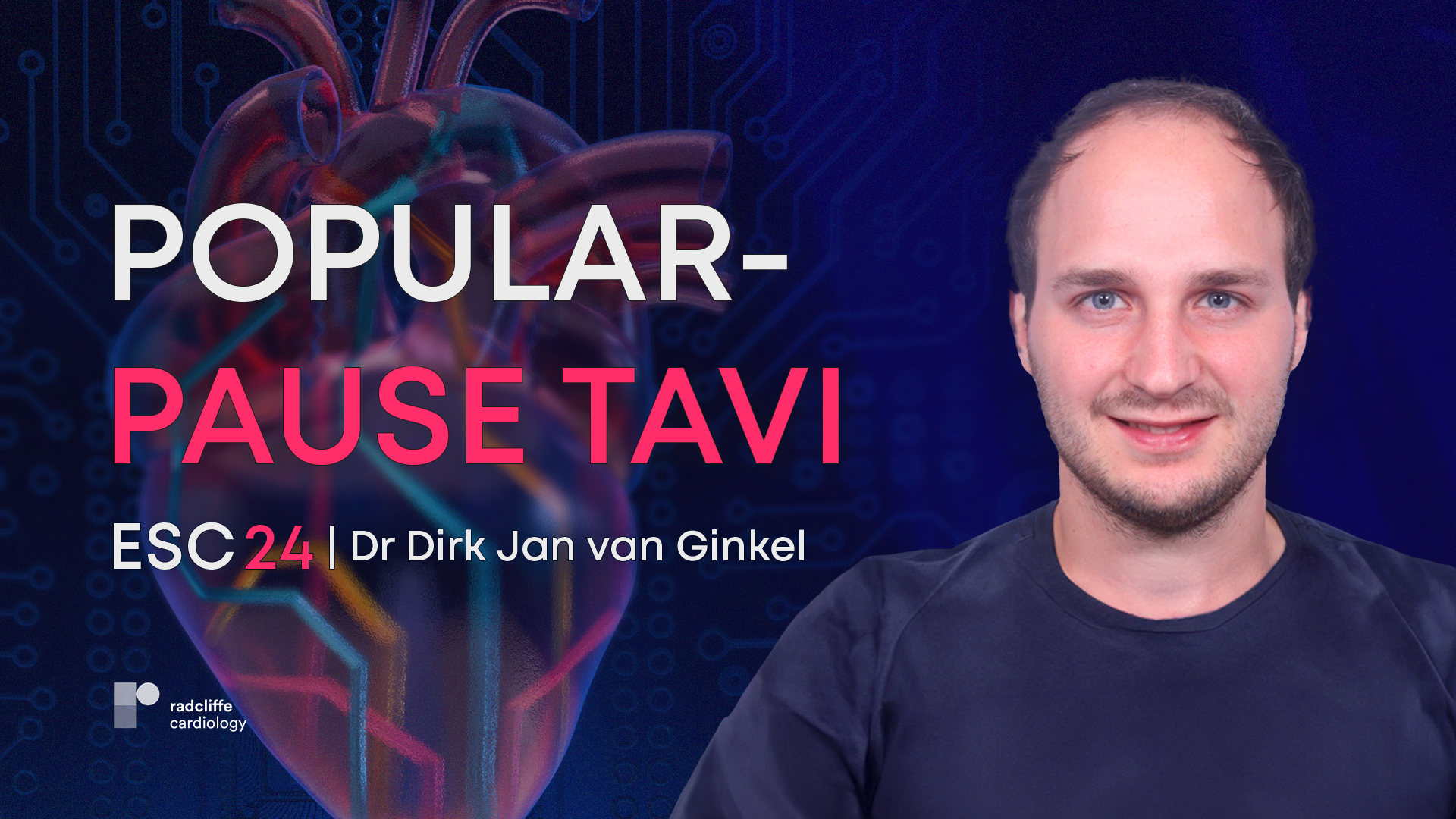 7m 9sPart 4 | Session 13 POPular PAUSE TAVI: Continuation or interruption of OAC During TAVI
7m 9sPart 4 | Session 13 POPular PAUSE TAVI: Continuation or interruption of OAC During TAVI
-
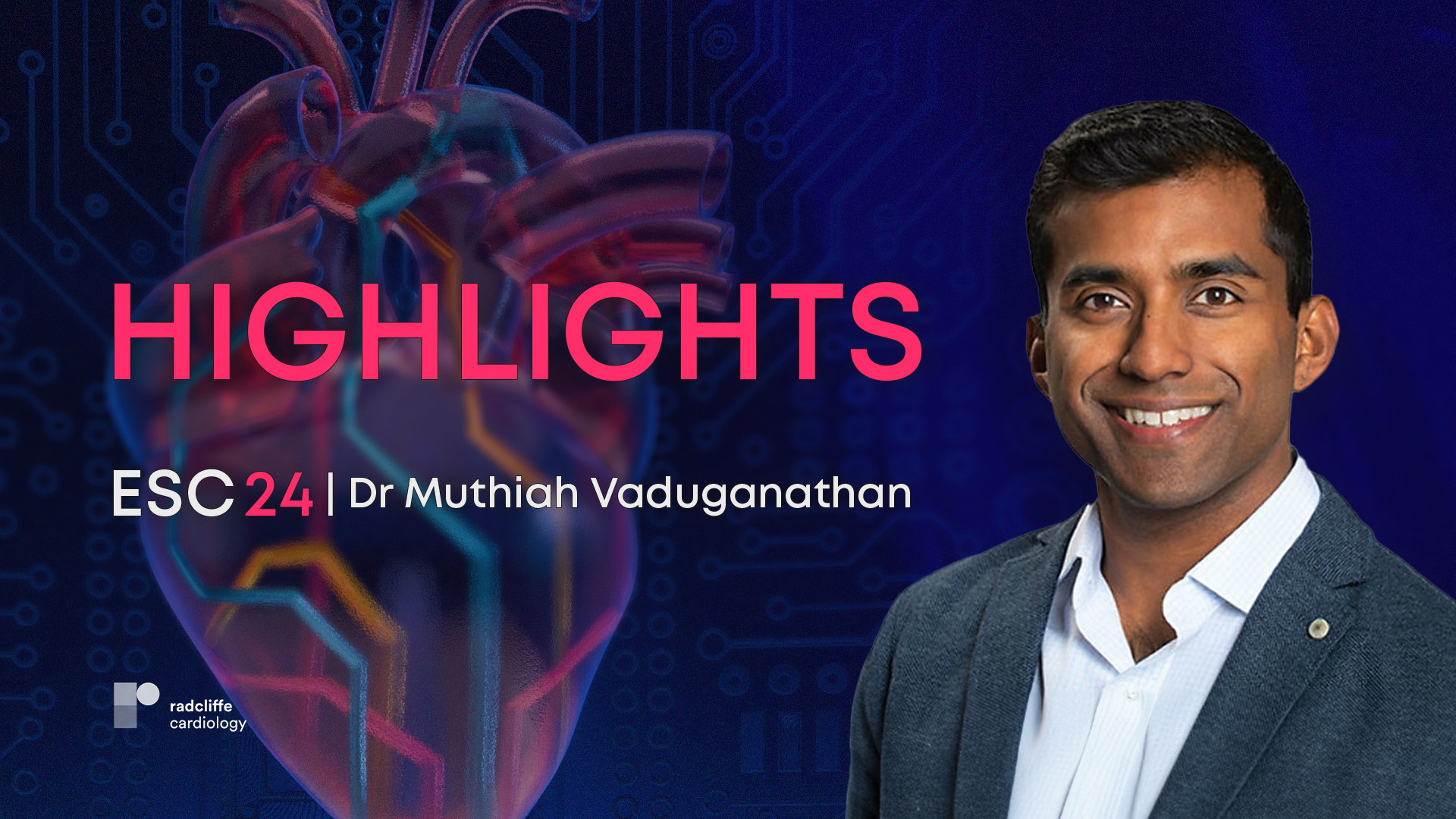 4m 54sPart 5 | Session 1 3 Trials That Will Change My Practice With Dr Muthiah Vaduganathan
4m 54sPart 5 | Session 1 3 Trials That Will Change My Practice With Dr Muthiah Vaduganathan -
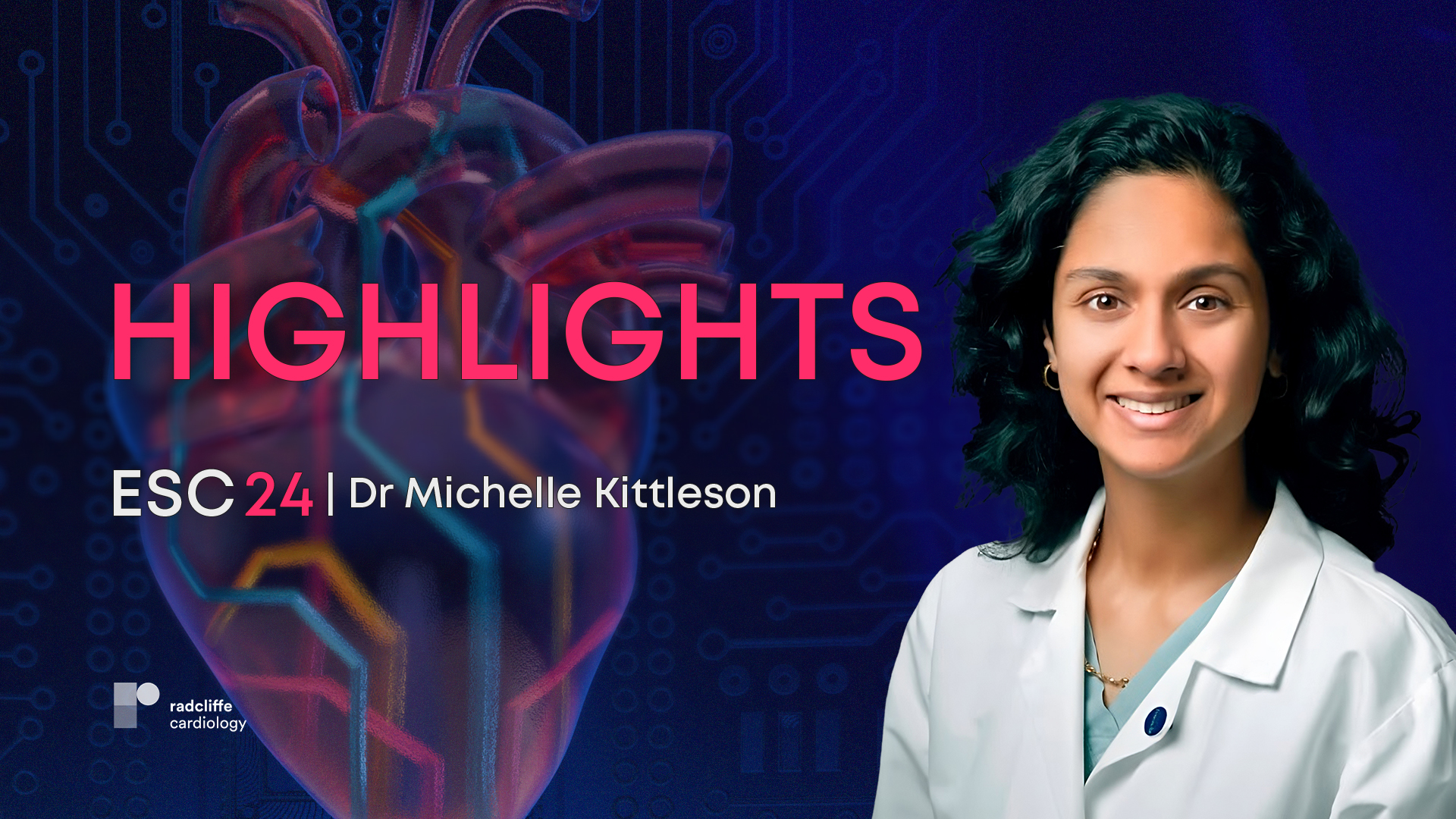 13m 47sPart 5 | Session 2 3 Trials That Will Change My Practice With Dr Michelle Kittleson
13m 47sPart 5 | Session 2 3 Trials That Will Change My Practice With Dr Michelle Kittleson
-
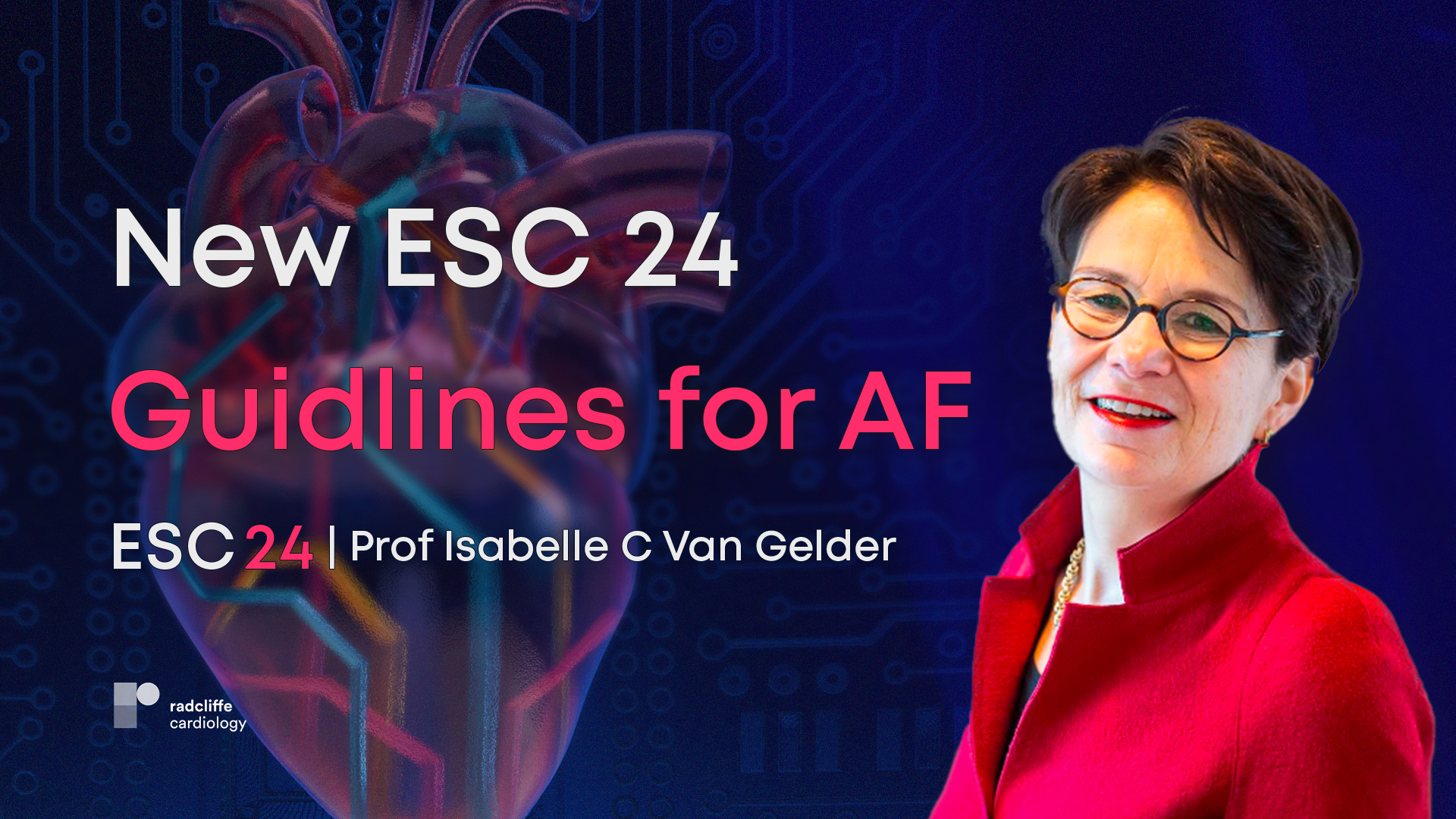 6m 55sPart 6 | Session 1 New Guidelines for the Management of Atrial Fibrillation
6m 55sPart 6 | Session 1 New Guidelines for the Management of Atrial Fibrillation -
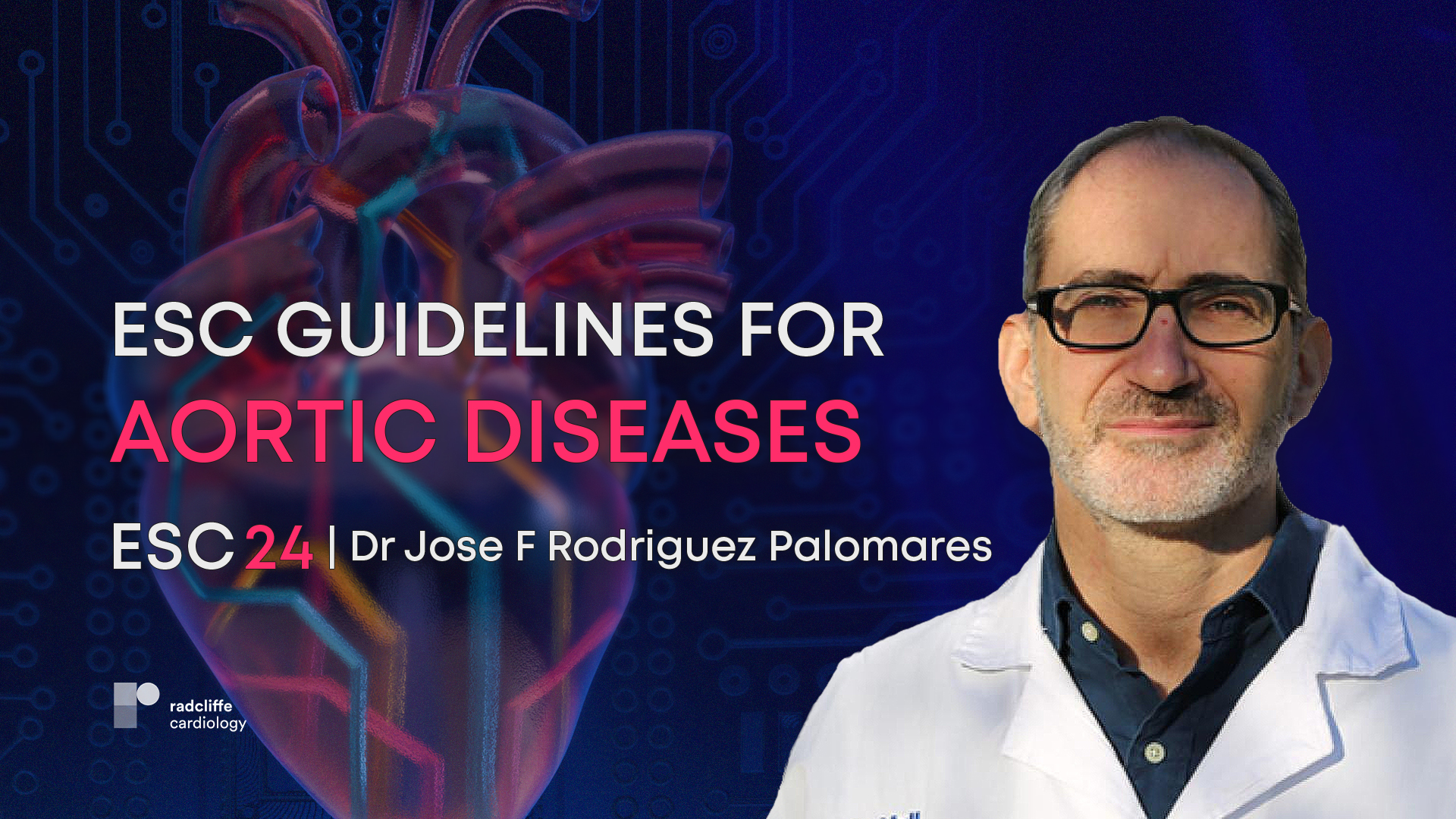 6m 13sPart 6 | Session 2 New Guidelines for the Management of Aortic Diseases
6m 13sPart 6 | Session 2 New Guidelines for the Management of Aortic Diseases
-
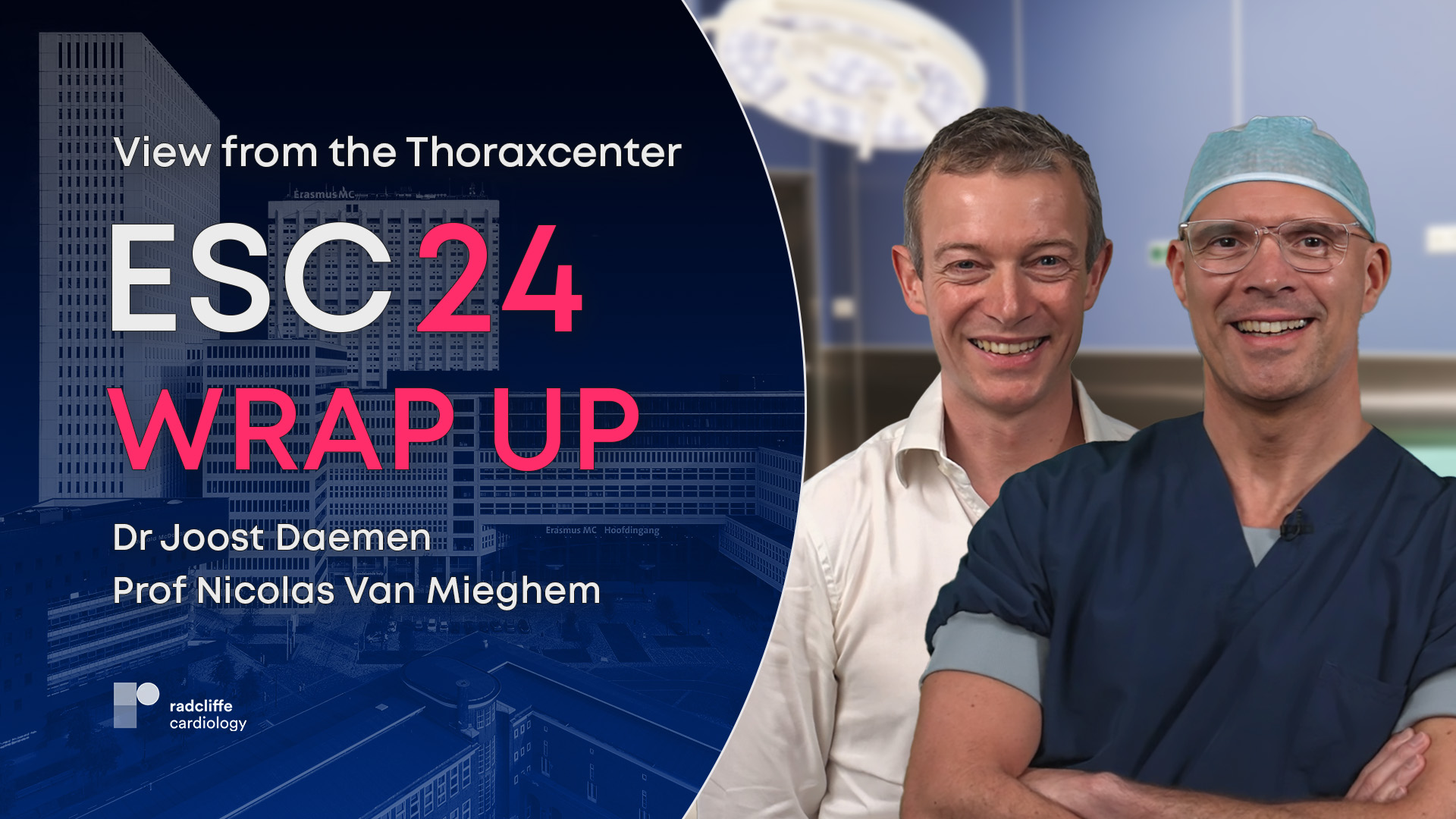 47m 31sPart 1 | Session 1 ESC Congress 2024 Hot Line Wrap Up Nicolas M Van Mieghem, Joost Daemen
47m 31sPart 1 | Session 1 ESC Congress 2024 Hot Line Wrap Up Nicolas M Van Mieghem, Joost Daemen
-
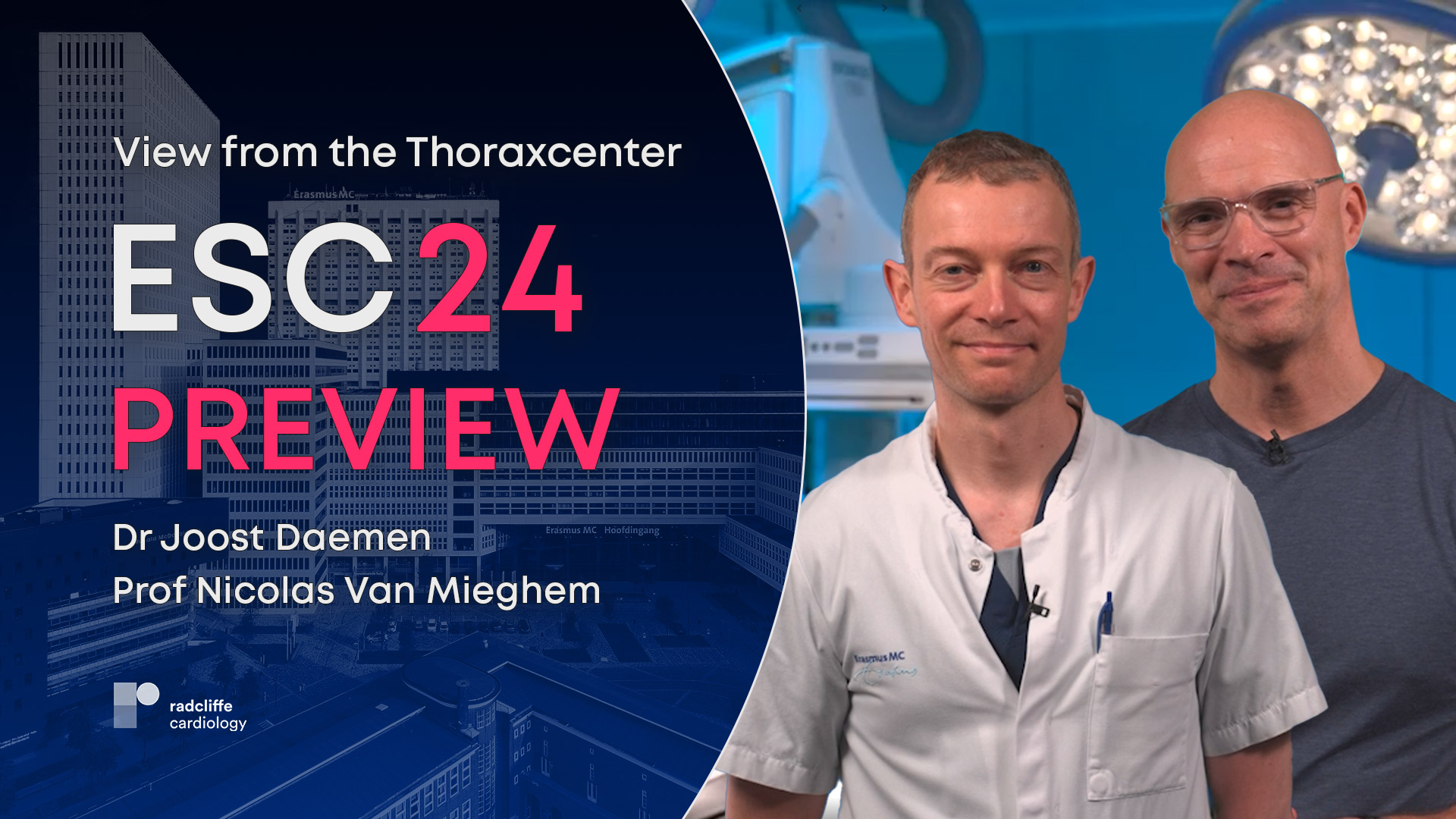 27m 27sPart 1 | Session 2 ESC Congress 2024 Hot Line Preview Nicolas M Van Mieghem, Joost Daemen
27m 27sPart 1 | Session 2 ESC Congress 2024 Hot Line Preview Nicolas M Van Mieghem, Joost Daemen
-
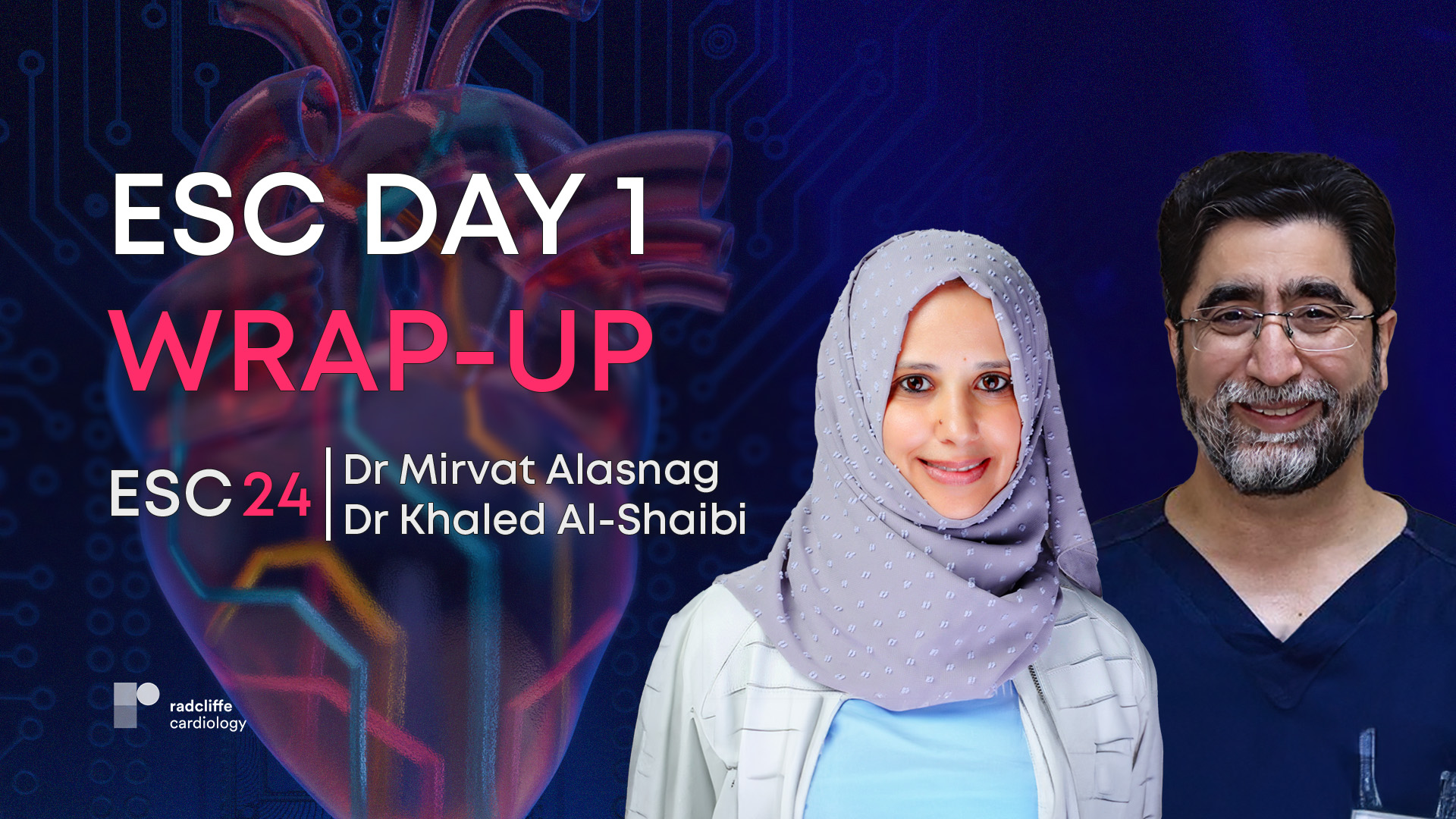 17m 25sPart 2 | Session 1 ESC Day 1 Wrap Up: New Guidelines, HELIOS-B, ABYSS & STOP-or-NOT Mirvat Alasnag, Khaled Al-Shaibi
17m 25sPart 2 | Session 1 ESC Day 1 Wrap Up: New Guidelines, HELIOS-B, ABYSS & STOP-or-NOT Mirvat Alasnag, Khaled Al-Shaibi
-
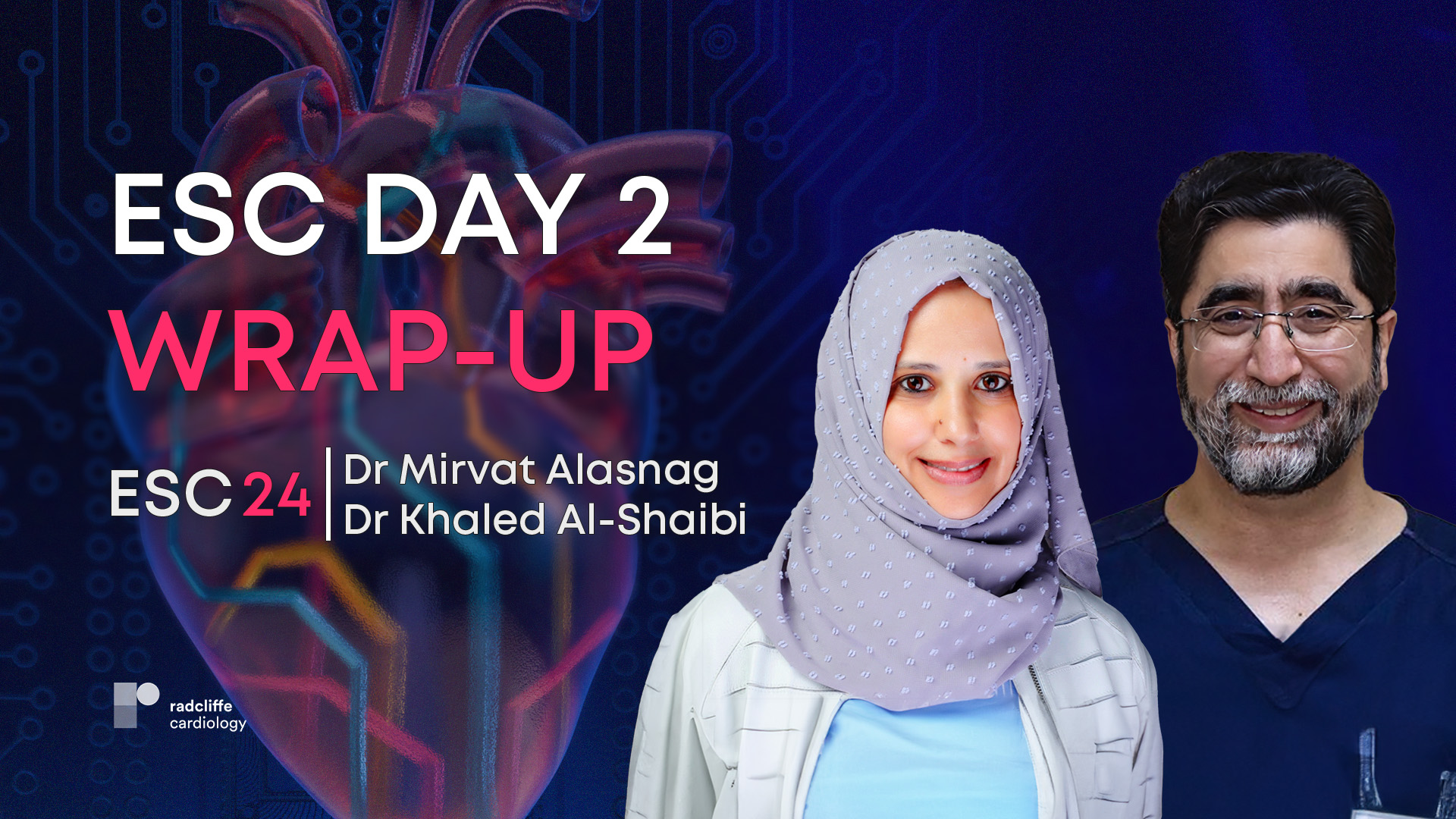 23m 2sPart 2 | Session 2 ESC Day 2 Wrap-Up: NOTION-3, RESHAPE-HF2, TRI.Fr & More Mirvat Alasnag, Khaled Al-Shaibi
23m 2sPart 2 | Session 2 ESC Day 2 Wrap-Up: NOTION-3, RESHAPE-HF2, TRI.Fr & More Mirvat Alasnag, Khaled Al-Shaibi
-
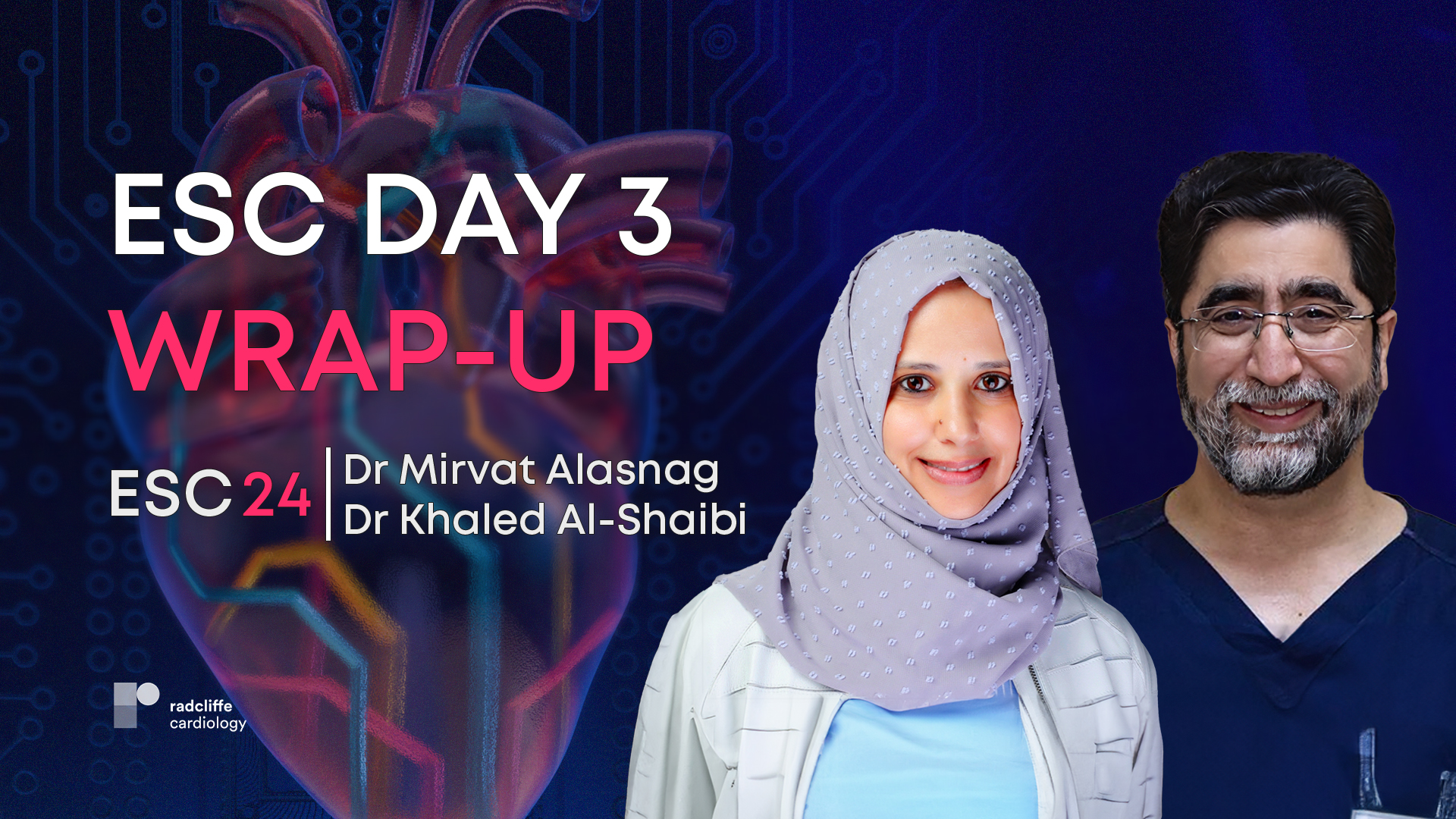 12m 28sPart 2 | Session 3 Day 3 Wrap-Up with Dr Alasnag and Dr Al-Shaibi Mirvat Alasnag, Khaled Al-Shaibi
12m 28sPart 2 | Session 3 Day 3 Wrap-Up with Dr Alasnag and Dr Al-Shaibi Mirvat Alasnag, Khaled Al-Shaibi
-
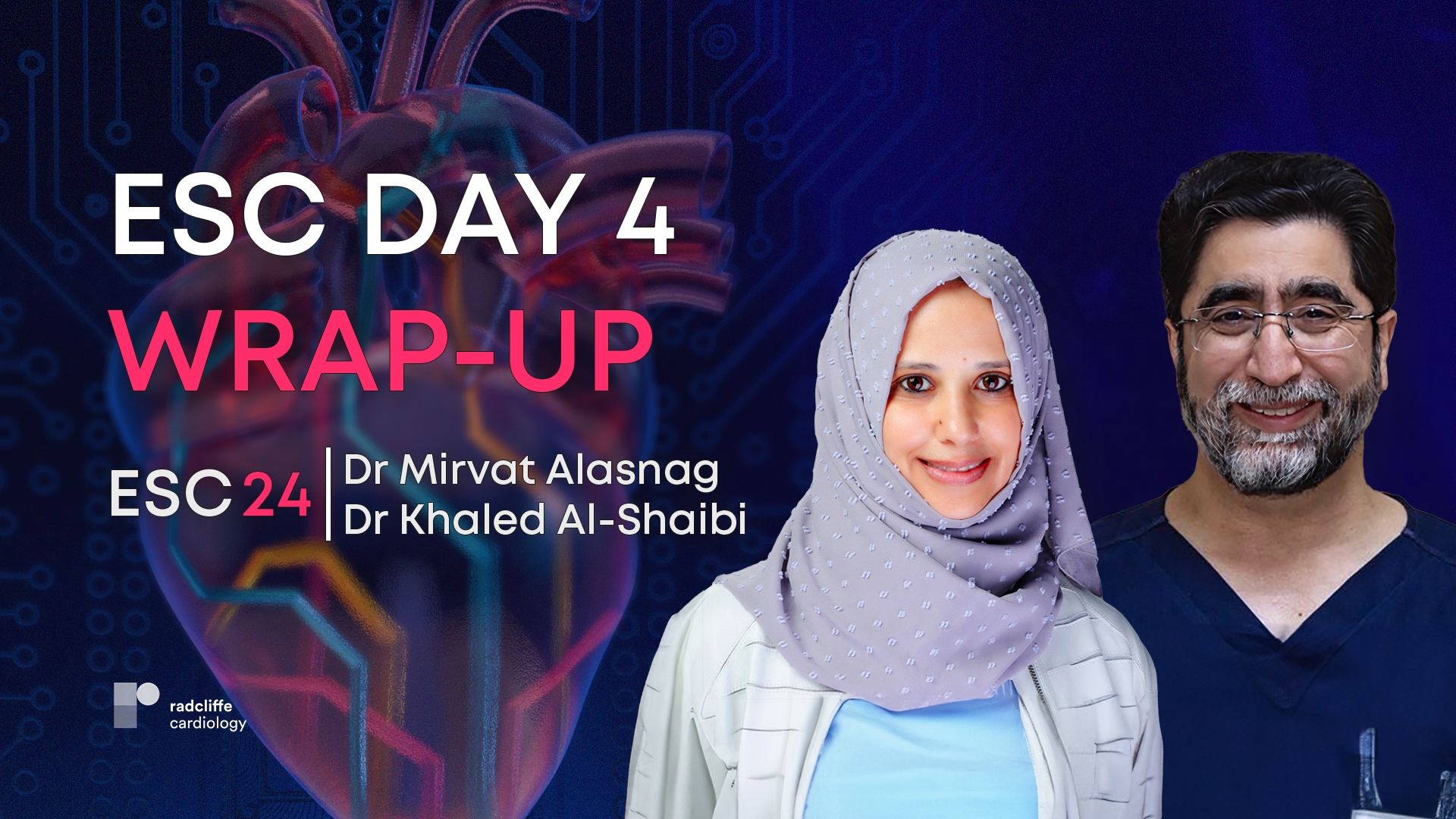 15m 45sPart 2 | Session 4 Day 4 Wrap-Up: OCCUPI, REC-CAGEFREE I, AEGIS-II & More Mirvat Alasnag, Khaled Al-Shaibi
15m 45sPart 2 | Session 4 Day 4 Wrap-Up: OCCUPI, REC-CAGEFREE I, AEGIS-II & More Mirvat Alasnag, Khaled Al-Shaibi
-
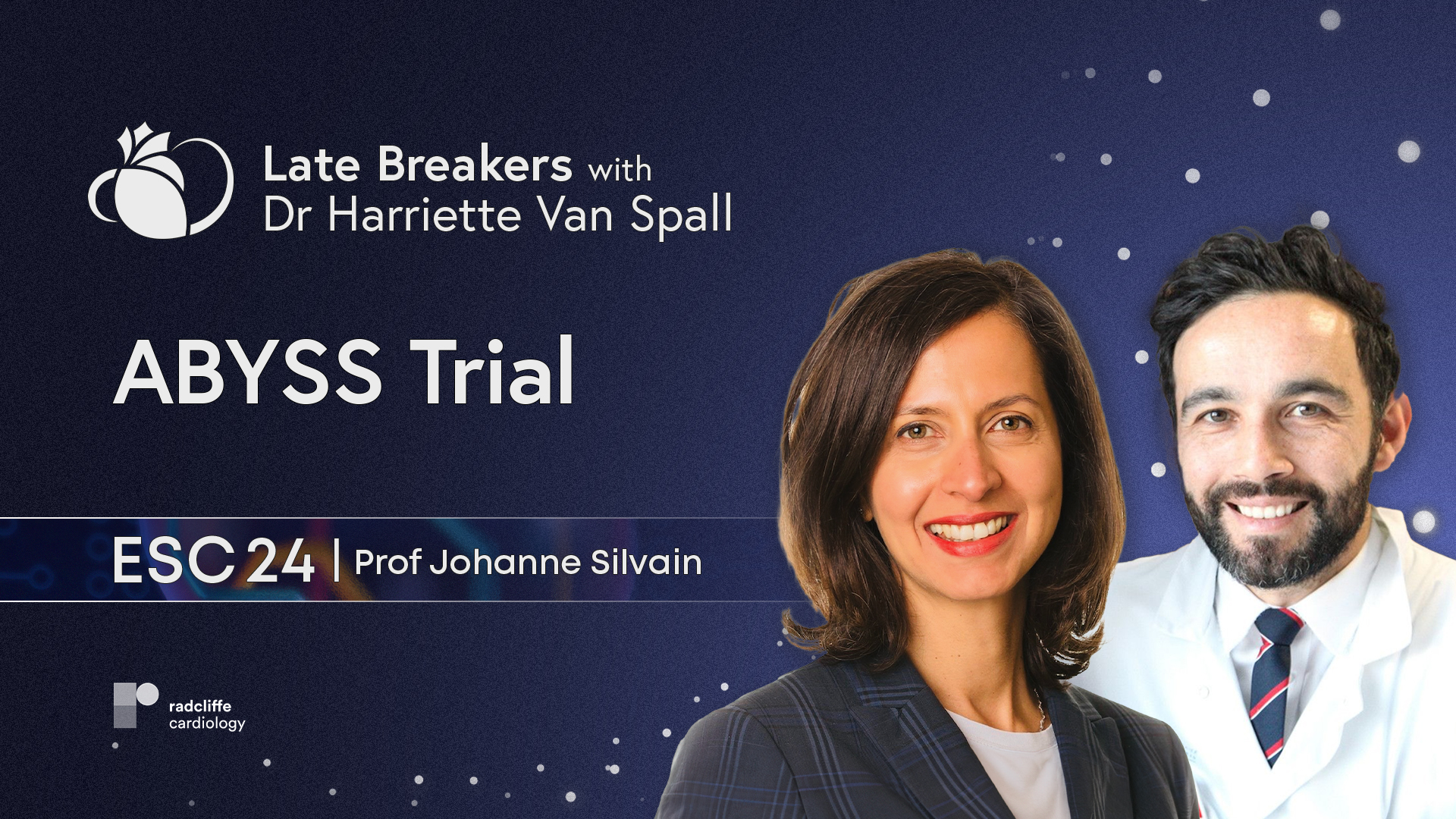 20m 58sPart 3 | Session 1 AβYSS: Beta Blocker Interruption After Uncomplicated MI Harriette Van Spall, Prof. Johanne Silvain
20m 58sPart 3 | Session 1 AβYSS: Beta Blocker Interruption After Uncomplicated MI Harriette Van Spall, Prof. Johanne Silvain
-
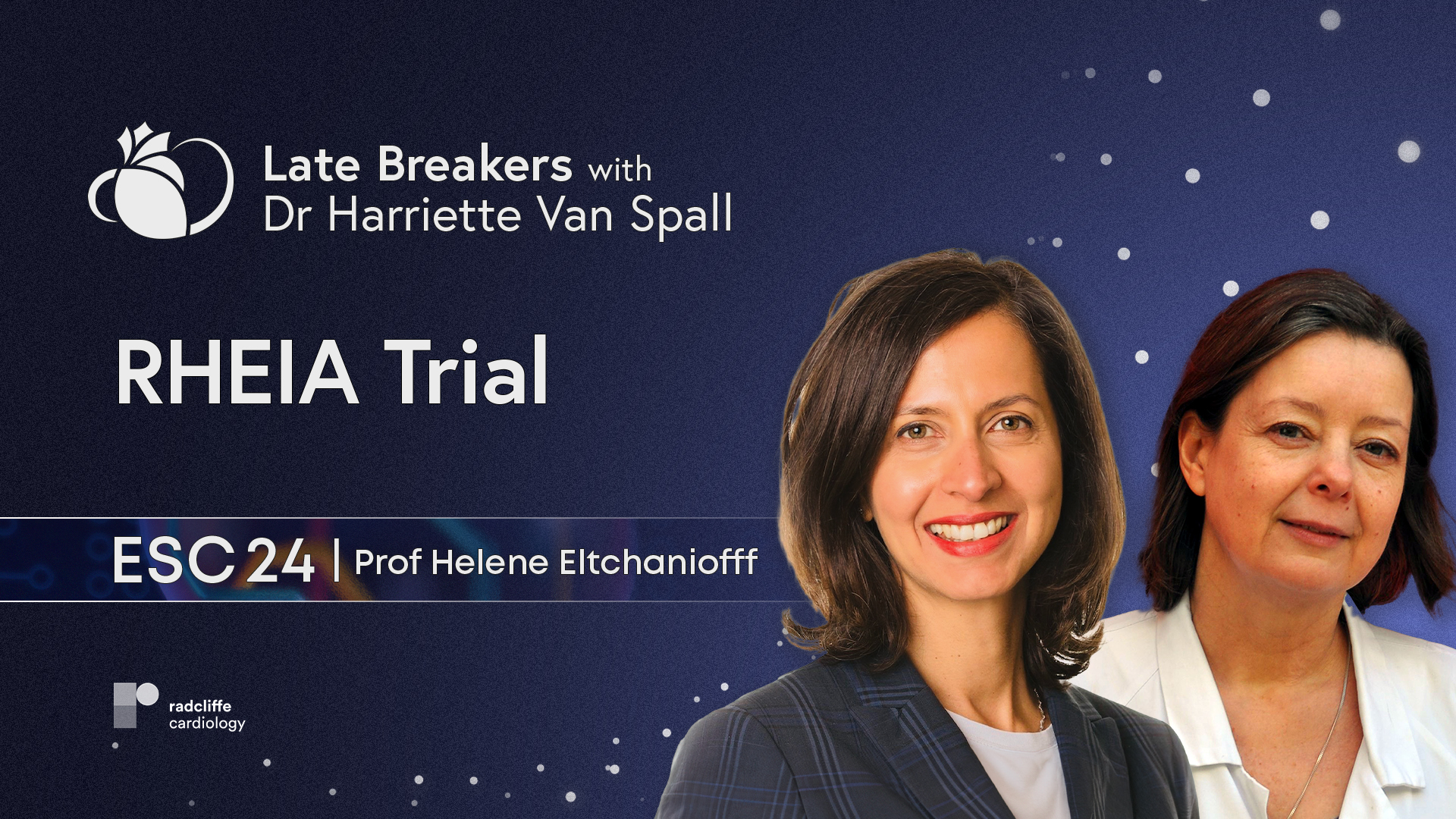 20m 14sPart 3 | Session 2 RHEIA: TAVR vs SAVR in Women with Severe AS Helene Eltchaninoff, Harriette Van Spall
20m 14sPart 3 | Session 2 RHEIA: TAVR vs SAVR in Women with Severe AS Helene Eltchaninoff, Harriette Van Spall
-
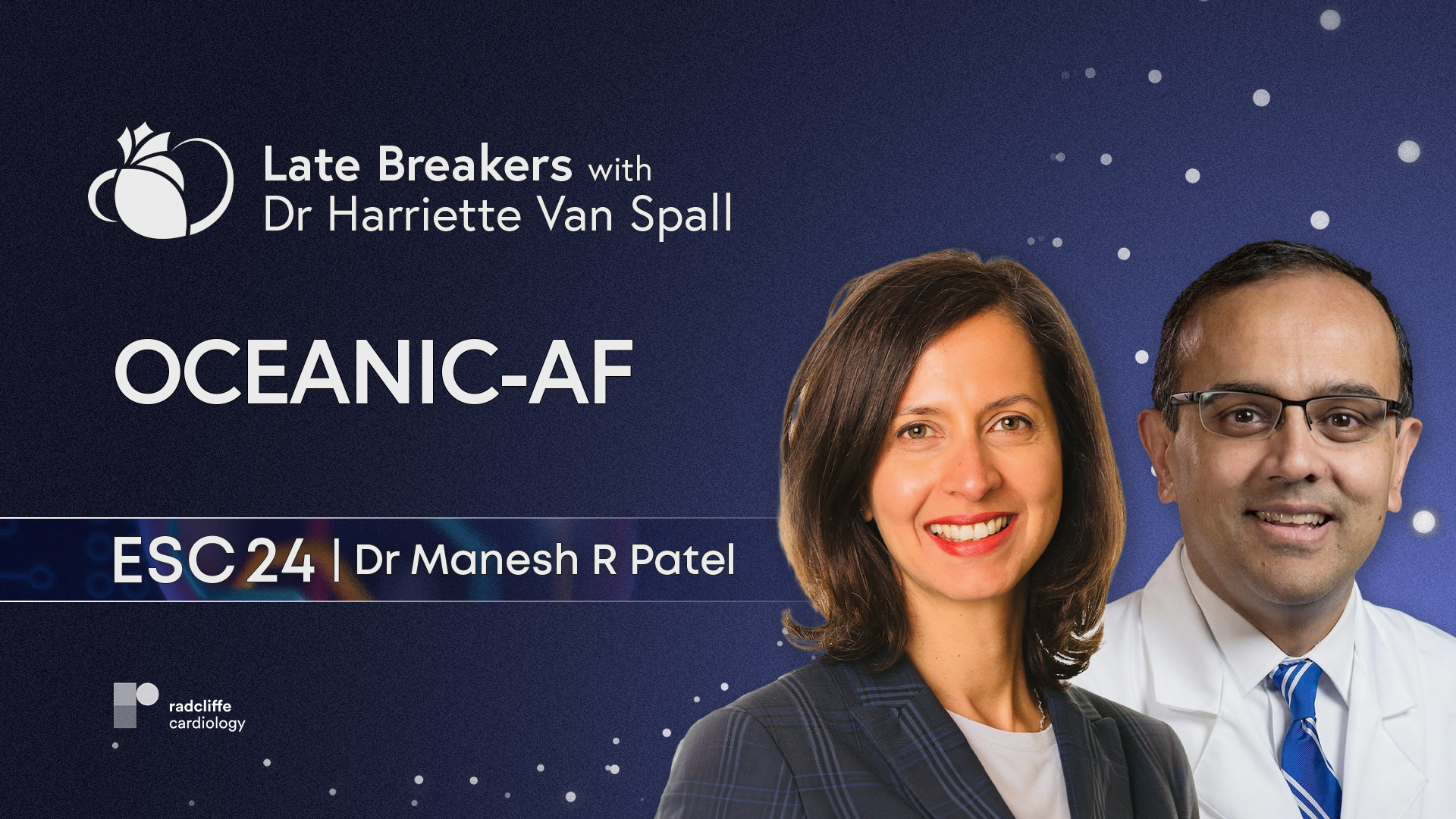 8m 47sPart 3 | Session 3 OCEANIC-AF: Asundexian Vs Apixaban in Atrial Fibrillation Manesh R Patel, Harriette Van Spall
8m 47sPart 3 | Session 3 OCEANIC-AF: Asundexian Vs Apixaban in Atrial Fibrillation Manesh R Patel, Harriette Van Spall
-
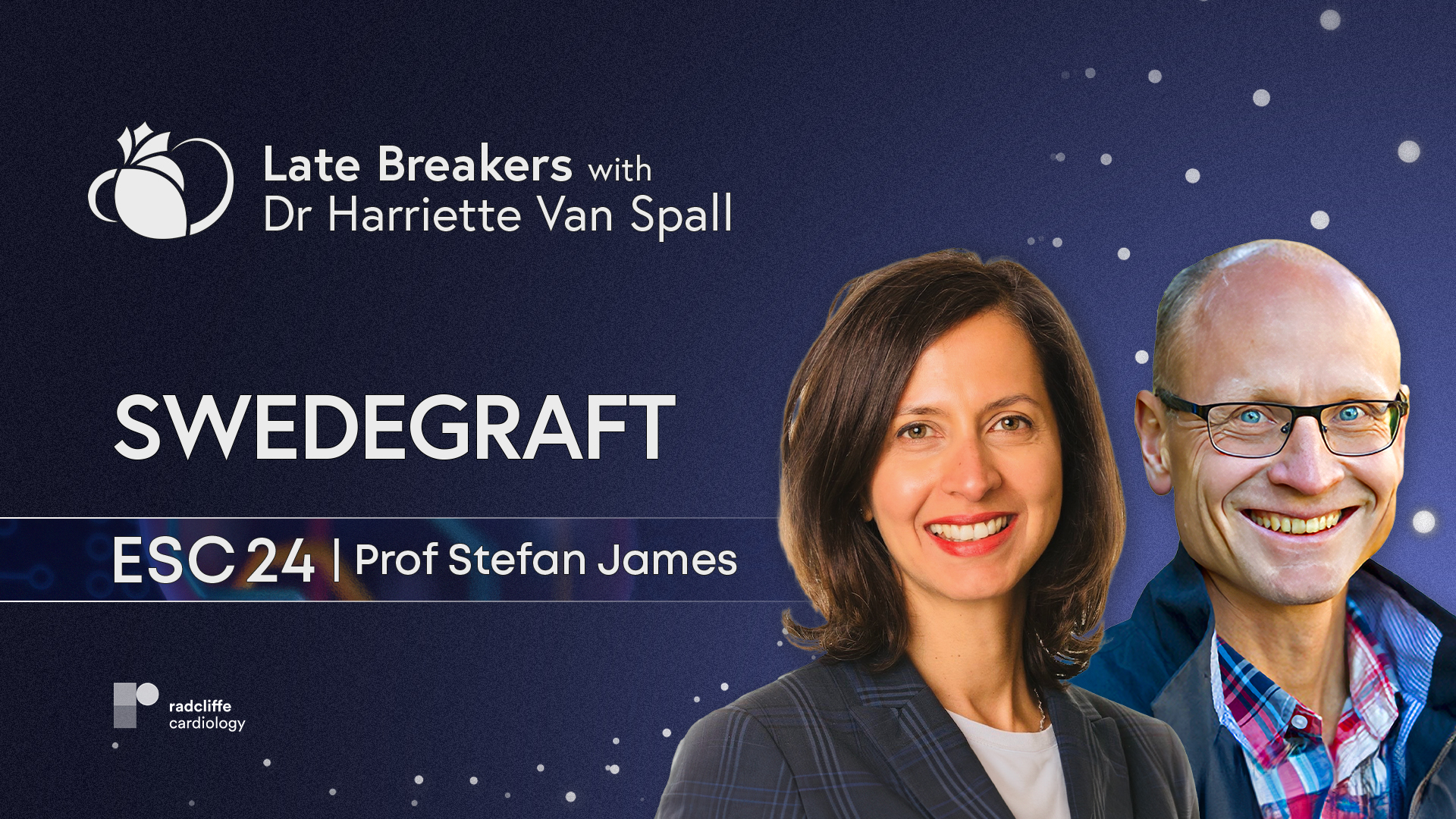 9m 29sPart 3 | Session 4 SWEDEGRAFT: No-touch Vein Graft in CABG Harriette Van Spall, Stefan James
9m 29sPart 3 | Session 4 SWEDEGRAFT: No-touch Vein Graft in CABG Harriette Van Spall, Stefan James
-
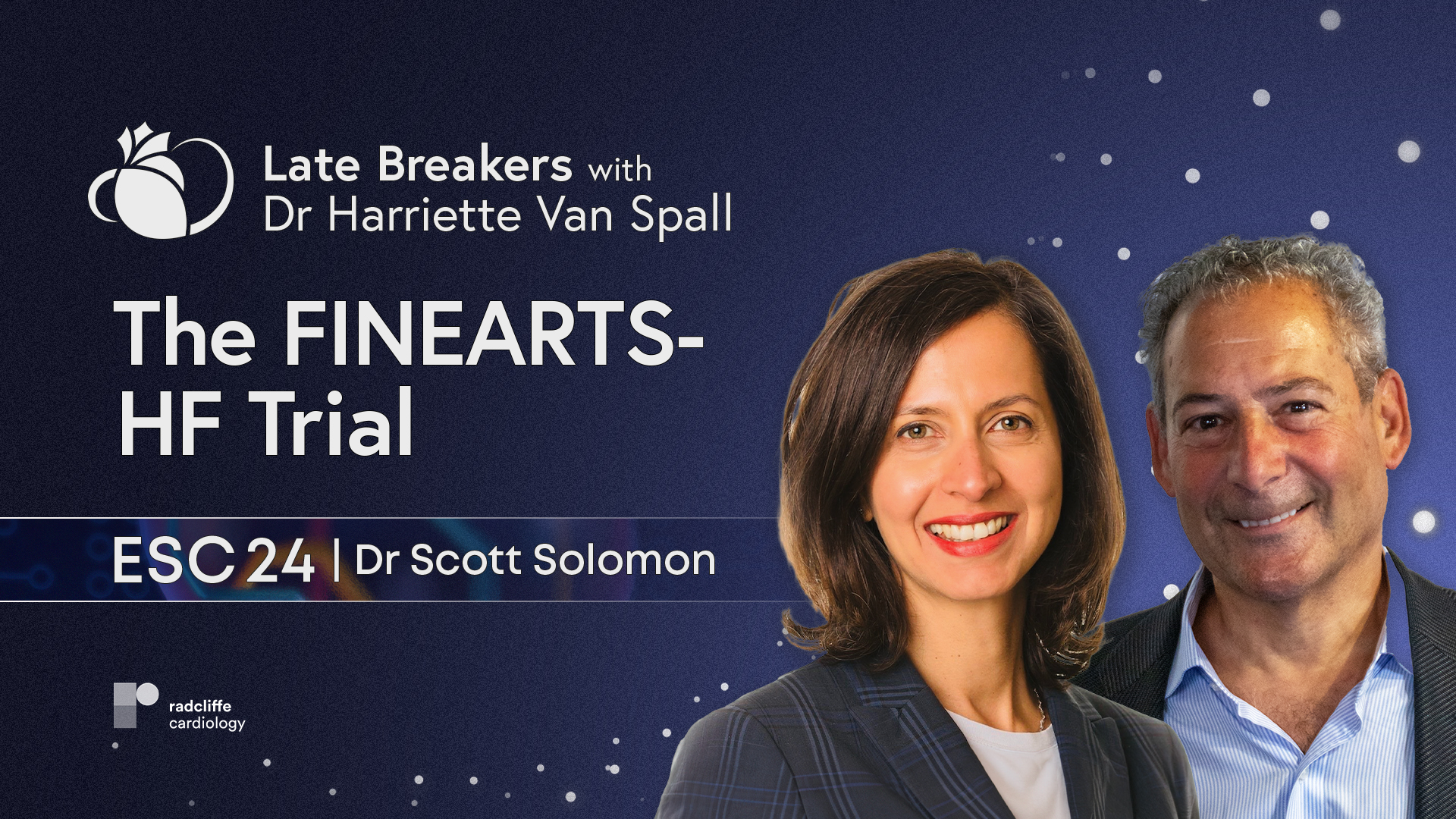 17m 28sPart 3 | Session 5 FINEARTS-HF: Finerenone HFmEF & HFpEF Harriette Van Spall, Scott Solomon
17m 28sPart 3 | Session 5 FINEARTS-HF: Finerenone HFmEF & HFpEF Harriette Van Spall, Scott Solomon
-
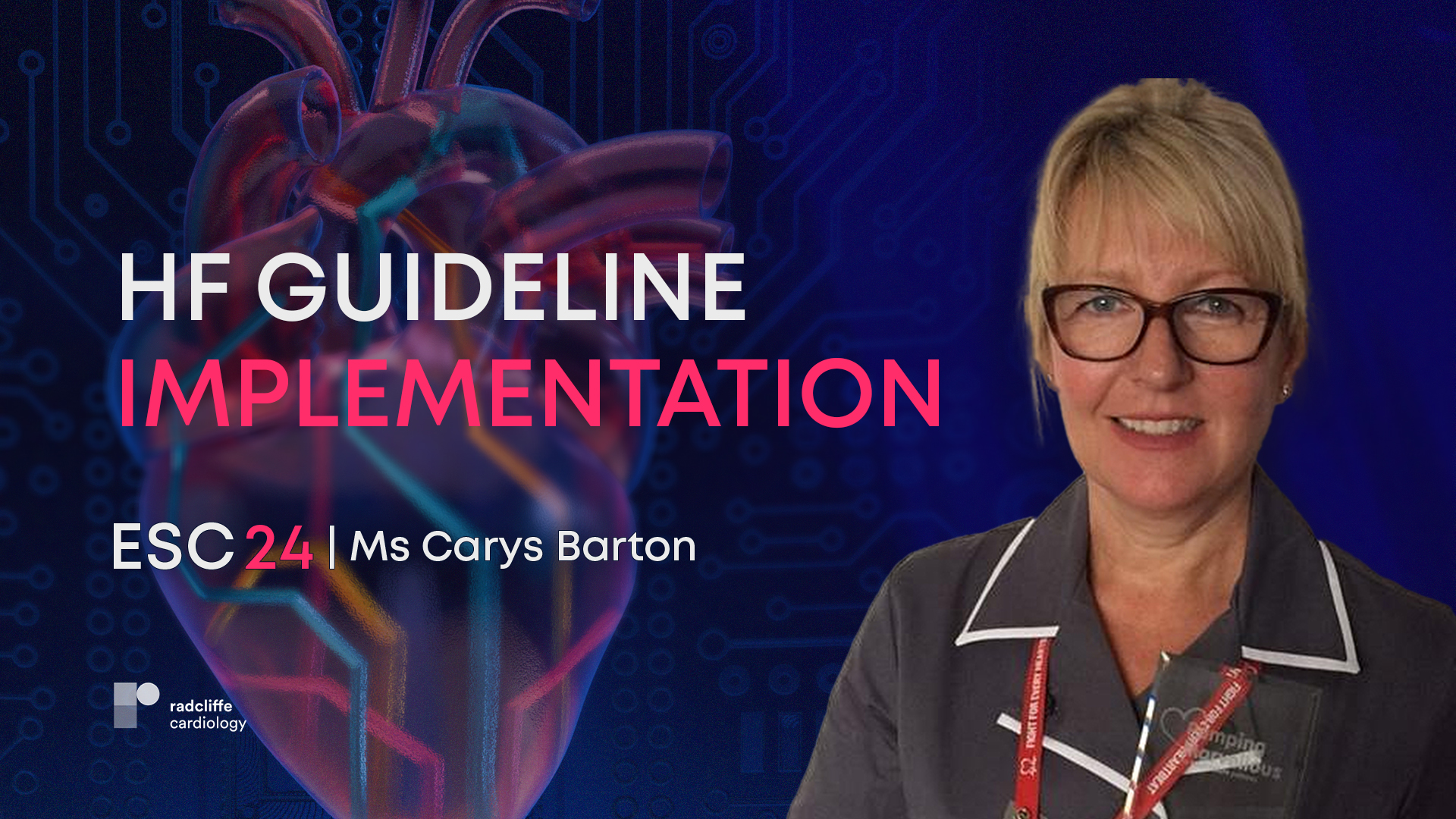 6m 8sPart 4 | Session 1 Bridging the Gap in Heart Failure Guideline Implementation from a Specialist Nurse Perspective Carys Barton
6m 8sPart 4 | Session 1 Bridging the Gap in Heart Failure Guideline Implementation from a Specialist Nurse Perspective Carys Barton
-
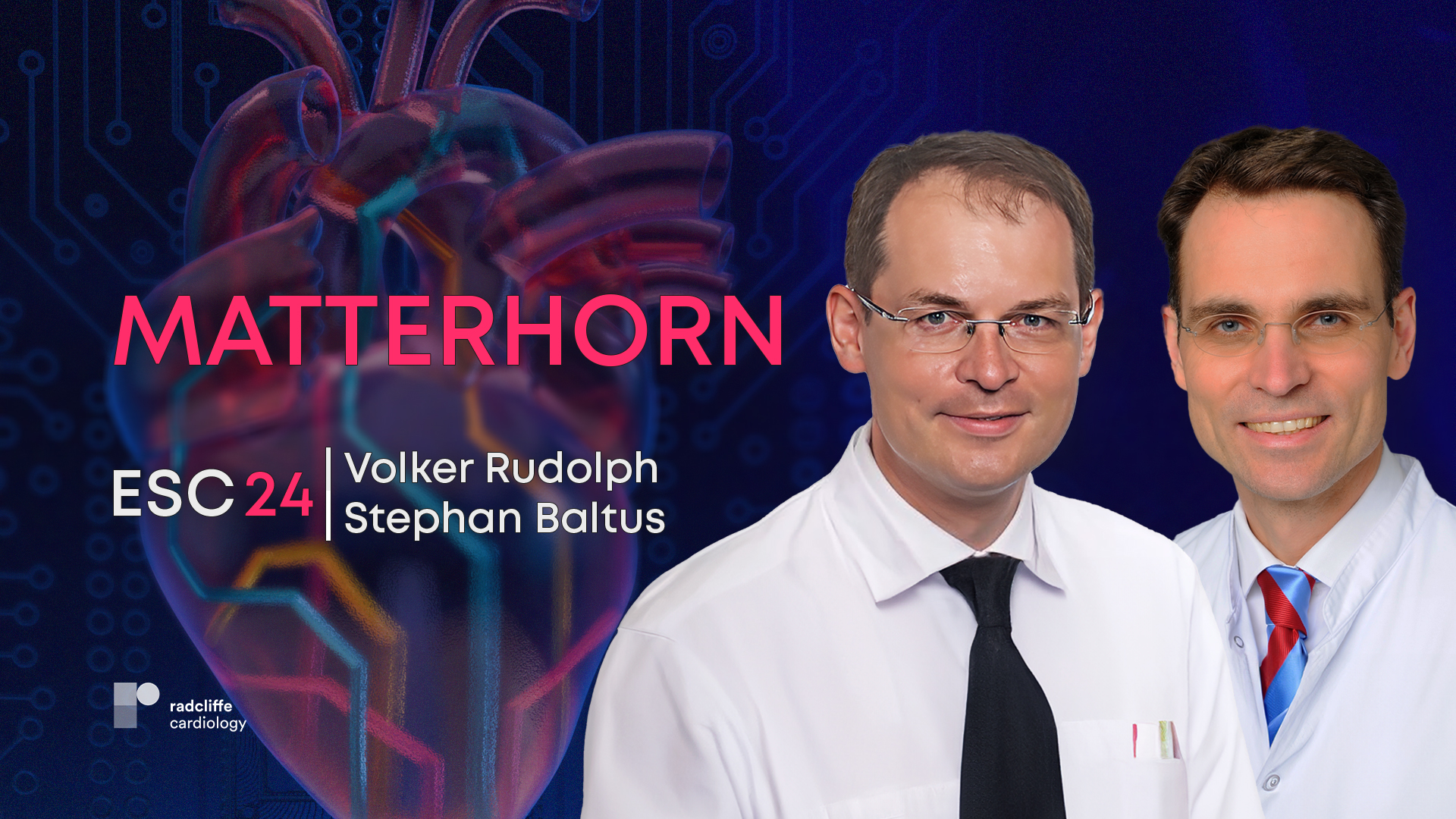 5m 29sPart 4 | Session 2 MATTERHORN: M-TEER vs Surgery in Heart Failure Volker Rudolph, Stephan Baldus
5m 29sPart 4 | Session 2 MATTERHORN: M-TEER vs Surgery in Heart Failure Volker Rudolph, Stephan Baldus
-
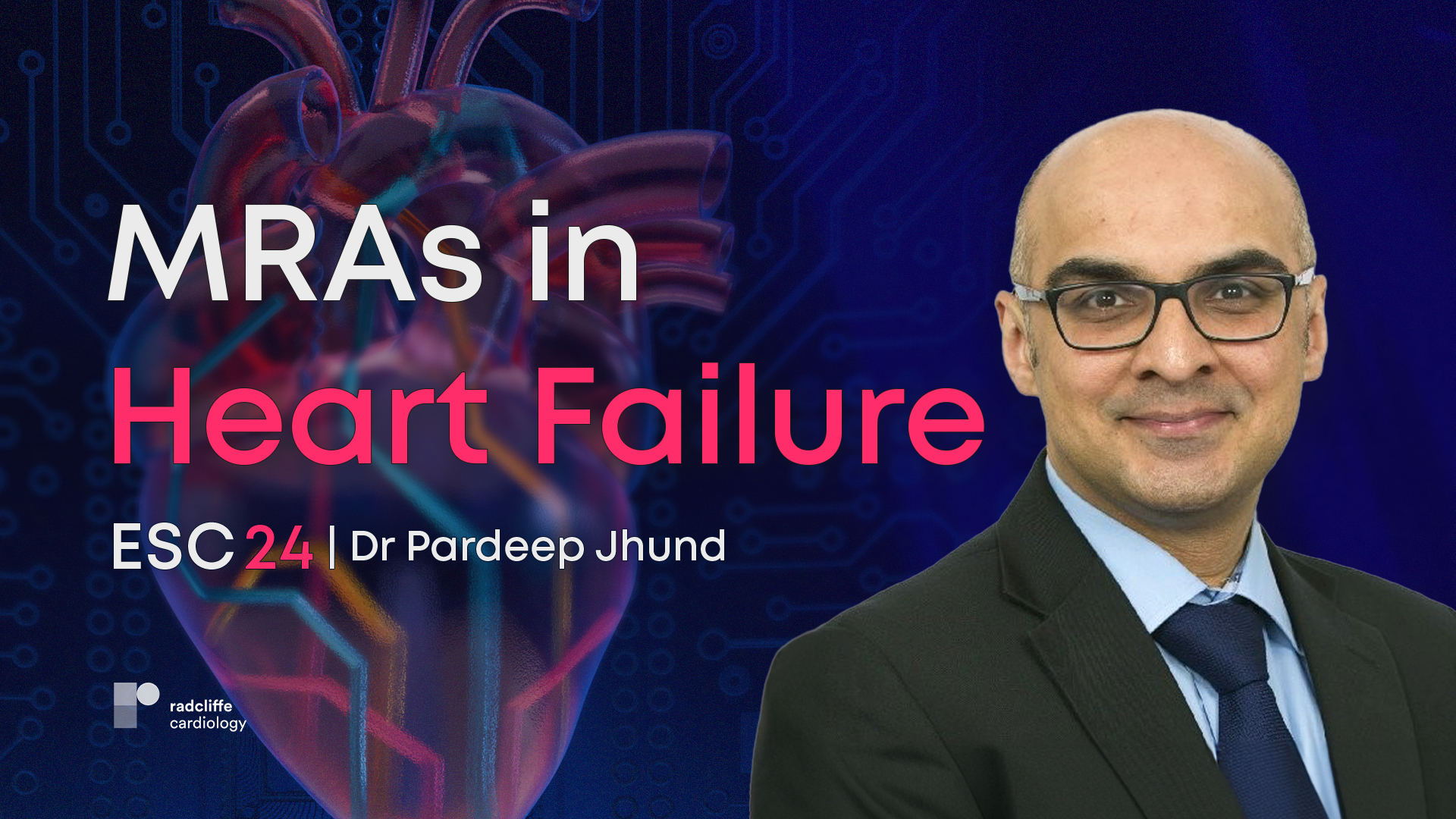 5m 46sPart 4 | Session 3 MRAs in Heart Failure Pardeep Jhund
5m 46sPart 4 | Session 3 MRAs in Heart Failure Pardeep Jhund
-
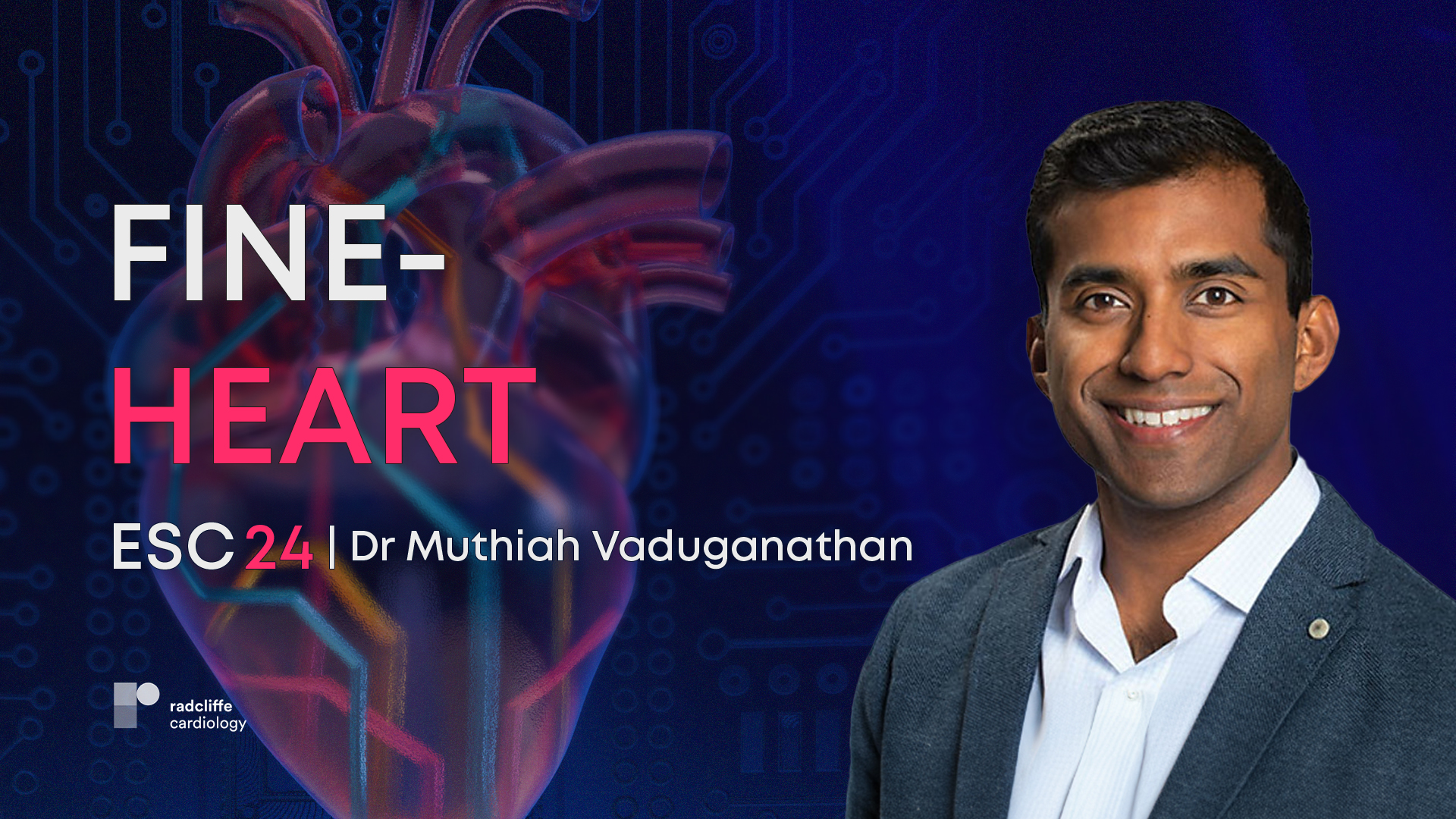 4m 24sPart 4 | Session 4 FINE-HEART: Finerenone in HF & CKD Muthiah Vaduganathan
4m 24sPart 4 | Session 4 FINE-HEART: Finerenone in HF & CKD Muthiah Vaduganathan
-
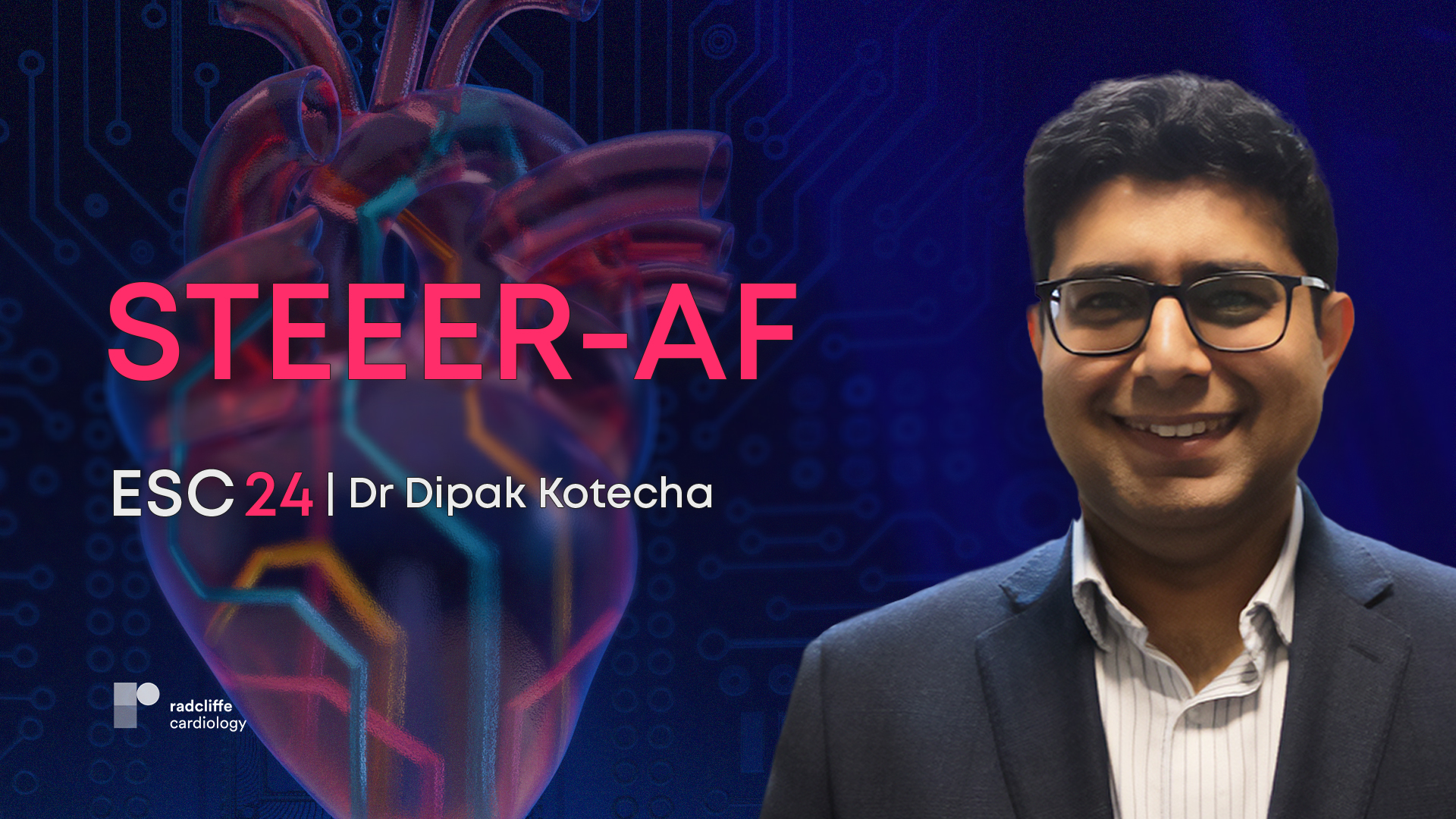 8m 18sPart 4 | Session 5 STEEER-AF: Stroke Prevention & Rhythm Control Therapy Dipak Kotecha
8m 18sPart 4 | Session 5 STEEER-AF: Stroke Prevention & Rhythm Control Therapy Dipak Kotecha
-
 3m 52sPart 4 | Session 6 NOTION-3: FFR Guided PCI in TAVI Jacob Thomsen Lønborg
3m 52sPart 4 | Session 6 NOTION-3: FFR Guided PCI in TAVI Jacob Thomsen Lønborg
-
 6m 48sPart 4 | Session 7 EPIC-CAD: Edoxaban vs Dual Antiplatelet Therapy in AF & CAD Gi-Byoung Nam, Min Soo Cho
6m 48sPart 4 | Session 7 EPIC-CAD: Edoxaban vs Dual Antiplatelet Therapy in AF & CAD Gi-Byoung Nam, Min Soo Cho
-
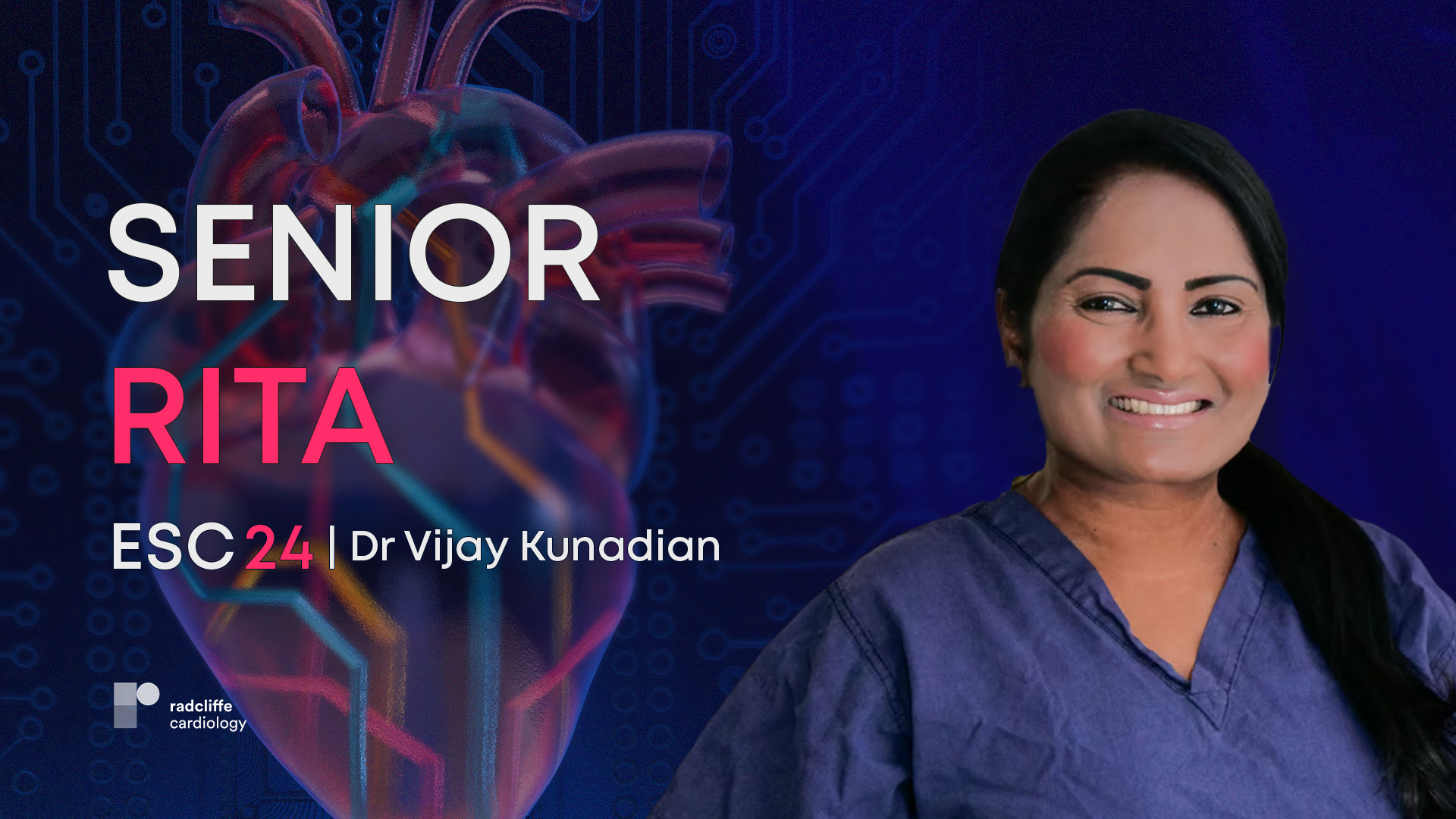 8m 17sPart 4 | Session 8 SENIOR RITA: Invasive Vs Conservative Strategy for Older Patients with MI Vijay Kunadian
8m 17sPart 4 | Session 8 SENIOR RITA: Invasive Vs Conservative Strategy for Older Patients with MI Vijay Kunadian
-
 3m 51sPart 4 | Session 9 EARTH-STEMI: Complete Vs Culprit-Only Revascularization in Older Patients Gianluca Campo
3m 51sPart 4 | Session 9 EARTH-STEMI: Complete Vs Culprit-Only Revascularization in Older Patients Gianluca Campo
-
 4m 17sPart 4 | Session 10 SCOFF: Fasting vs. Non-Fasting: Impact on Cardiac Catheterization Outcomes David Ferreira
4m 17sPart 4 | Session 10 SCOFF: Fasting vs. Non-Fasting: Impact on Cardiac Catheterization Outcomes David Ferreira
Overview
What's hot at the ESC Congress 2024?
Stay ahead of the curve with our faculty-led coverage of the European Society of Cardiology Congress in London. From groundbreaking trials to expert insights, we've got you covered.
- Watch our View From the Thoraxcenter series for practice-focused reviews of the most anticipated trials from interventional experts, Prof Nicolas Van Mieghem and Dr Joost Daemen.
- For a deeper dive into key hot line clinical trial data and its applicability, host, Dr Harriette Van Spall meets with principal investigators in her Late-Breaker Discussion series.
- View a condensed summary of the crucial takeaways from each day in our Wrap-Up series led by Dr Mirvat Alasnag.
- Our short, bite-sized Expert Interviews with select faculty will focus on data, take-home messages for practice and the future of their field.
Get ready for a deep dive into the latest cardiology research. Our coverage of the ESC Congress is coming soon.
More from this programme
Part 1
View From the Thoraxcenter: What's Hot at ESC 24?
Part 2
Daily Wrap Ups with Dr Alasnag and Dr Al-Shaibi
Part 3
Hot-line Discussions with Dr Harriette Van Spall
Part 4
Expert Interviews
Part 5
Highlights
Part 6
Guidelines
About the episode
ESC Congress 24 — AF screening with a wearable ECG device increases diagnosis by over 50% but did not significantly reduce hospitalisation rates for stroke.
We are joined onsite at ESC Congress 2024 by Dr Renato Lopes (Duke University Medical Center, NC) to discuss the findings from the GUARD-AF Trial (NCT04126486, Bristol-Myers Squibb), which was designed to determine if screening for undiagnosed atrial fibrillation (AF) or atrial flutter (AFL) in patients aged 70 and above can reduce the incidence of strokes as compared to those receiving standard of care without screening. The trial involved 11,931 participants across 176 locations, and used the Zio® XT monitor to detect AF or AFL.
The primary outcome of the GUARD-AF study is to measure the incidence of all strokes leading to hospitalization, comparing the effectiveness of the Zio® XT monitor intervention in detecting undiagnosed atrial fibrillation (AF) or atrial flutter (AFL) against usual care without screening. Secondary outcomes include the incidence of bleeding events leading to hospitalization. These outcomes are assessed over a period of 2.5 to 5 years, aiming to determine whether early detection and management of AF or AFL can significantly reduce the risk of stroke and monitor any associated risks such as bleeding.
Findings showed that over a median follow up of 15 months, a 52% increase in cases of atrial fibrillation were diagnosed over a maximum of 2.5 years of follow-up, an increase in uptake of oral anticoagulants, no increase in hospitalisation rates and no significant reduction in stroke hospitalisation as compared to usual care. It should be noted that these results cannot be considered conclusive, as the trial was stopped early due to the COVID-19 pandemic.
Interview Questions:
- How can atrial fibrillation or atrial flutter contribute to stroke risk in elderly individals?
- Can you tell us about the study design and patient population?
- What were the key findings?
- How should these findings impact clinical practice?
- What further research is needed, and what are the next steps?
Recorded on-site at ESC Congress 2024, London.
Editors: Jordan Rance and Mirjam Boros.
Videographers: Mike Knight, Dan Brent, Oliver Miles, Tom Green, David-Ben-Harosh.
Support: This is an independent interview produced by Radcliffe Cardiology.
Faculty Biographies
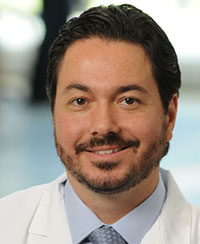
Renato D Lopes
Professor of Medicine
Dr Renato D Lopes is currently the Director of Clinical Events Classification (CEC) and the Co-Director of the Integrated Clinical Events-Safety Surveillance Group. His primary research interests include investigating the impact and outcomes of atrial fibrillation complicating acute coronary syndromes.
Dr Lopes completed his clinical training at the Federal University of São Paulo, and his Cardiology Fellowship at the Duke Clinical Research Institute (DCRI), serving as Chief Fellow for the research training program during his senior year.






Comments